A presentation of the research “Kremlin’s Anti-European Narratives. Map of Information Threats to Ukraine”.
The presentation took place on 21 May within the framework of the round table “Kremlin’s Attacks on European Integration: How to Protect Ukraine’s European Course” at Ukrinform.
‘We have gathered today to fulfil two key tasks,’ said Ihor Solovey, Head of the Centre for Strategic Communications, “The first is to talk about the main threats facing Ukraine in connection with its European integration. The second one is to present the Centre’s analytical research on anti-European narratives that Russia is deliberately spreading to hinder our progress towards the EU.”
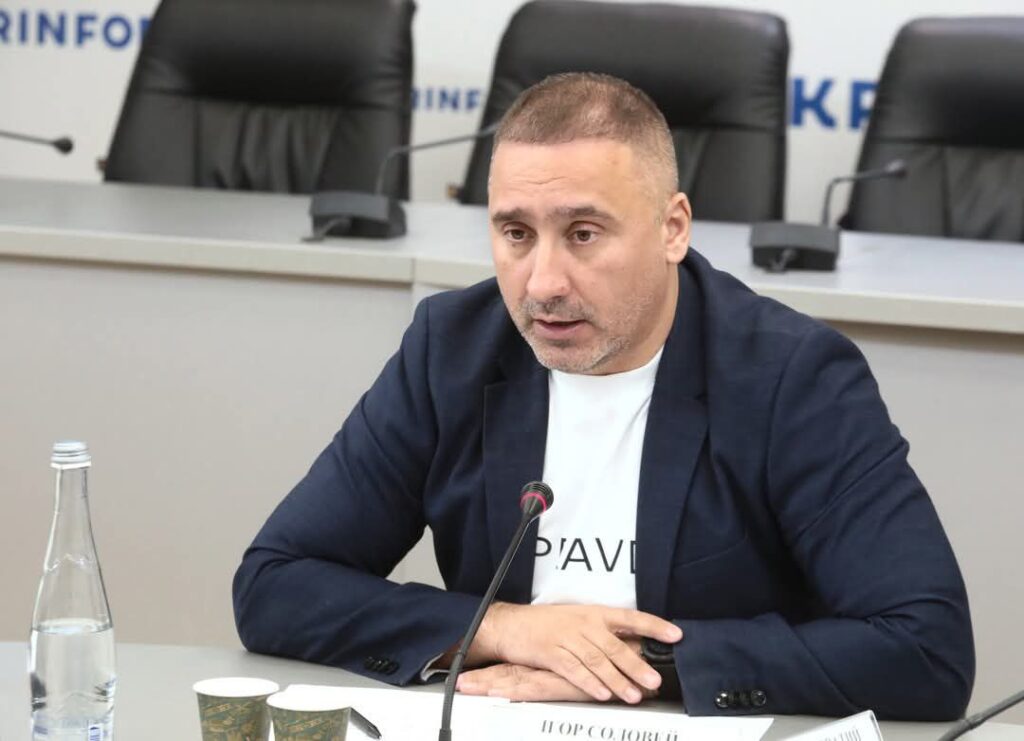
The opening remarks were made by Ukrinform Director General Serhiy Cherevaty, who stressed the importance of continued support for such initiatives:
“This is an extremely important discussion. That is why Ukrinform will continue to be a regular partner of all pro-European information events. We remember well: even before Yanukovych, the Kremlin was promoting the thesis ‘do not join NATO, but please join the EU’. But as soon as the issue of European integration became real, we saw resistance. This is where the Maidan began. For the Kremlin, any movement towards Europe is a challenge, and it will harm it. We have to do the opposite. This research will definitely be useful in our future work.”
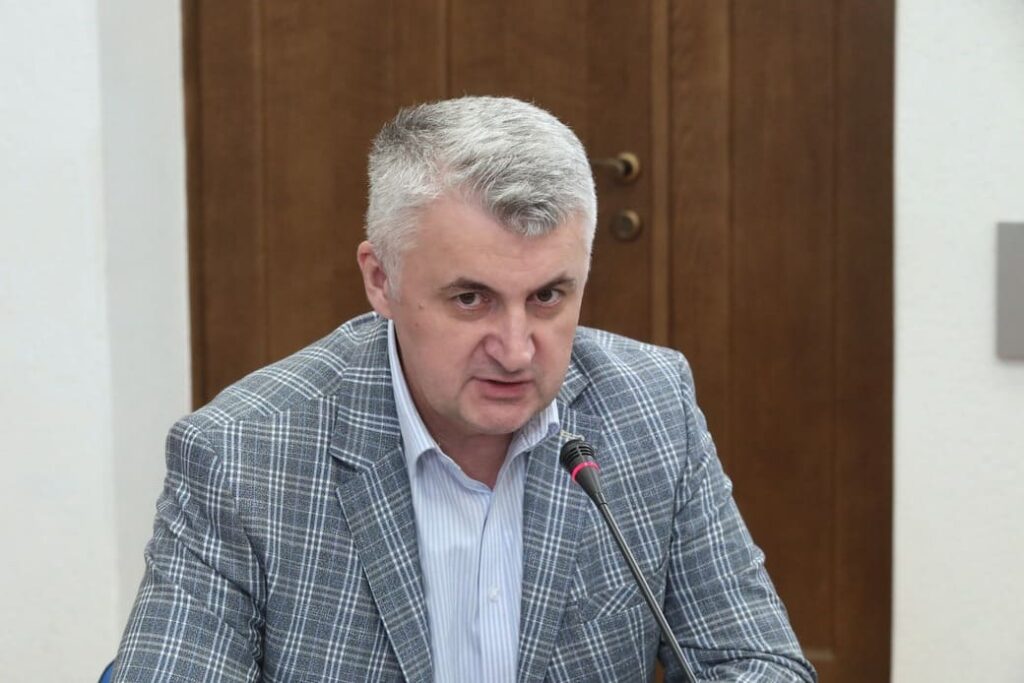
The key analytical part was presented by Serhiy Zhukov, analyst at the Centre for Strategic Communications. He stressed that Russian efforts are aimed not only at the political but also at the cognitive level of influence:
“We constantly monitor the information space and record threats, in particular those related to Ukraine’s European integration. Russia is trying to block our course towards the EU and strengthening cooperation with Western countries. To do this, it influences public sentiment, spreads harmful narratives, destabilises from within and undermines trust in European institutions.”
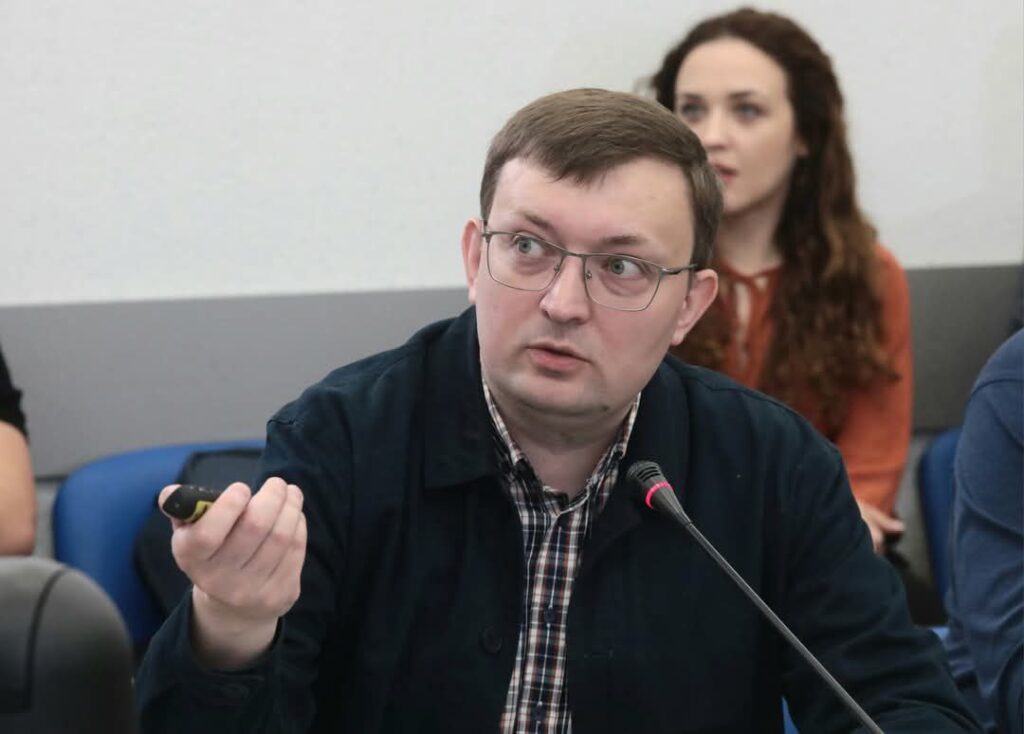
According to him, the Kremlin is actively using the tools of cognitive warfare – that is, it creates logically constructed, supposedly convincing stories that ‘explain’ complex processes in simple terms – in a way that is beneficial to Russia.
“One of the key narratives is the so-called “external governance”. Its sub-narrative is that Ukraine is a puppet of the West, Brussels, and the EU. Since 2025, another thesis has been actively promoted – that it is beneficial for Europe to drag out the war in Ukraine because it makes money on it. This is presented as a threat to EU security and the involvement of European countries in a direct conflict with Russia,” Zhukov said.
According to the Centre, in the first quarter of 2025 alone, about 5,000 mentions related to the narratives of ‘European puppeteers’ and ‘puppet state’ were recorded in the Ukrainian information field. The total reach of these messages is over 43 million.
Andriy Nadzhos, Deputy Minister of Culture and Strategic Communications for European Integration, stressed the practical significance of the study:
“It shows where we are now in our movement towards the European Union. We are all well aware that we want to start negotiations on individual clusters as soon as possible. Unfortunately, there have been attempts to derail us from this path. This story started back in 2014, and it is not new to us – we have learnt to live with it and counteract it.
Recently, we have seen attempts by some countries to block the negotiation process, although Ukraine has already passed the screening in a number of sections. And here we can see the work of the country that has been waging war against us for years.”
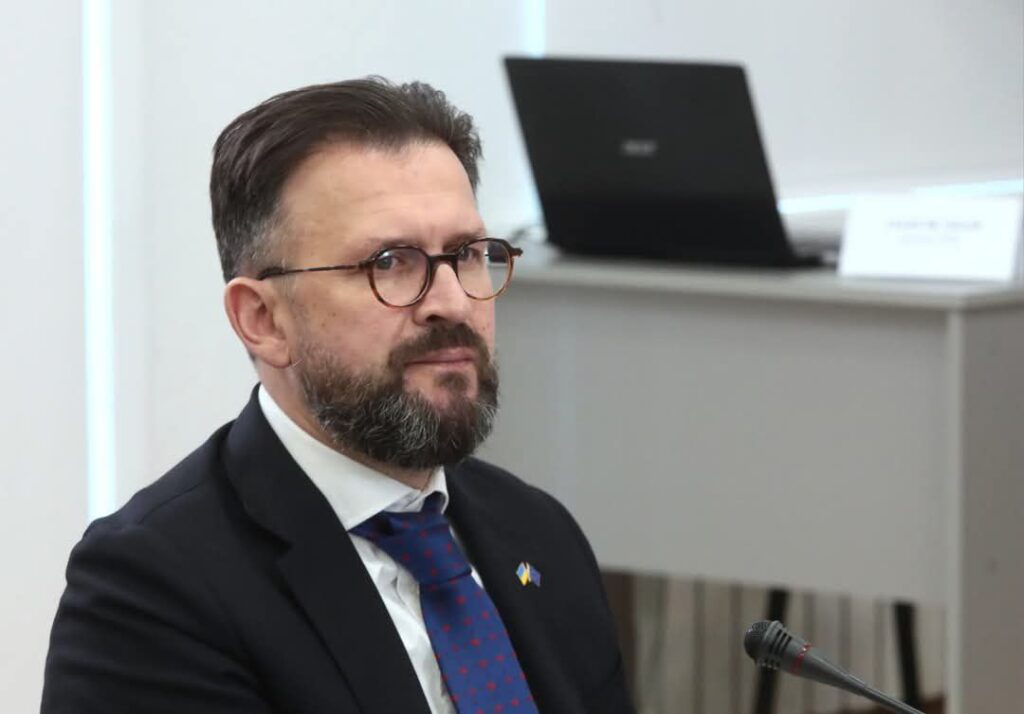
Serhiy Sydorenko, editor of Yevropeiska Pravda, highlighted the risks associated with the growth of Euroscepticism:
“We should not fall into the trap of thinking that Euroscepticism is just a Russian invention. It will grow stronger due to the convergence of three factors. The first one is the high expectations of Ukrainians. The second is the lack of positive news from the EU. Unfortunately, it is our reality – at least for this year – that the amount of negative news will outnumber the positive. This has been accumulating for a long time, it is not something that happened suddenly, and many of these processes were predictable.
The third factor is the impact of the difficult situation in the United States, which is blocking those European initiatives that could be positive. All this has coincided in time and creates a favourable environment for those who promote the ideas of Euroscepticism. Therefore, we need to be conscious and clearly understand what positive news we can generate. It is impossible to completely eliminate the negative, but we can create real positive messages to balance this impact.”
Sergiy Sydorenko also noted that the whole world is entering a new era, as evidenced by the elections in Moldova and Romania.
“The Romanian case has demonstrated that traditional media have lost their ability to effectively communicate key government messages. Moreover, we simply do not see what is happening in the real public perception.
The version promoted by the Romanian state became popular: it was a Russian information operation through TikTok channels – nice and quiet. But this is an oversimplification. The state actually lost and tried to justify its defeat by attributing it to Russian influence.”
According to him, we are already seeing a new information ecosystem where traditional media play a secondary role.
“Georgescu and Simion (right-wing radical presidential candidates in Romania – Ed.) had wide support, which was not noticed by either sociologists or state institutions. In the end, Romania found itself in a situation where Basescu had already won, but the authorities decided to cancel the results, which only strengthened the perception of usurpation and manipulation. This provoked even more support for Simion.”
The editor of Yevropeiska Pravda stressed that this case should be a lesson for Ukraine.
“Because sooner or later we will also have elections. And we will find ourselves in a similar situation: with uncontrolled channels on TikTok, Telegram, Facebook Shorts. It is not yet clear how to deal with this. But we need to act now, otherwise we will repeat the same scenario.”
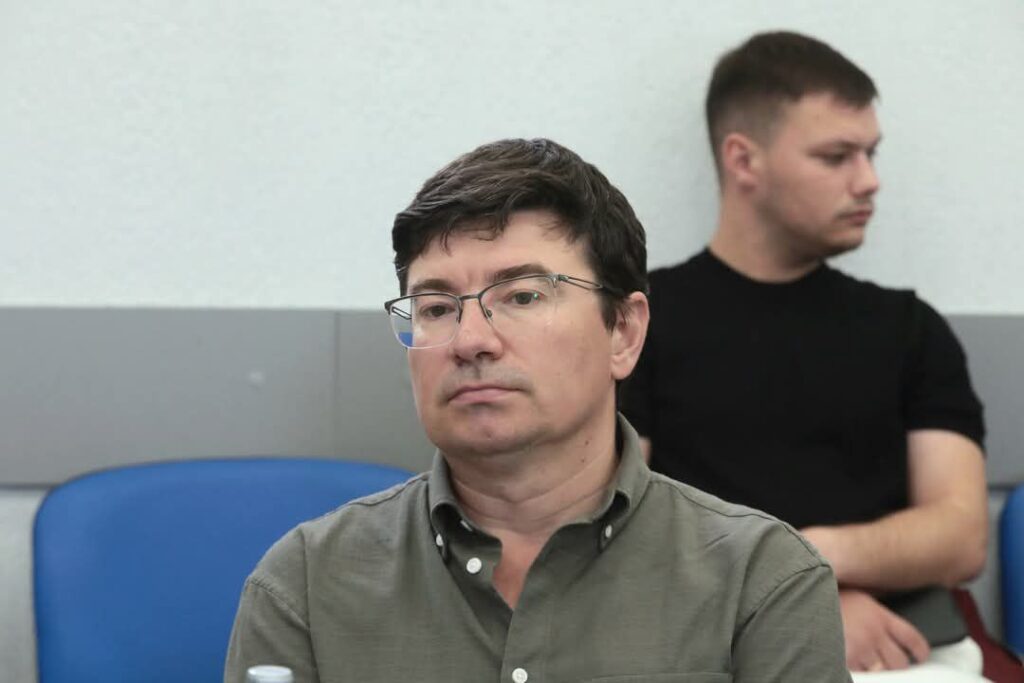
Dariia Gaidai, Deputy Head of the Office of the Vice Prime Minister for European Integration, drew attention to hidden Eurosceptic narratives within the EU itself:
“Our path has always been difficult. Contrary to what some countries are trying to show as an alleged ‘fast track’ for Ukraine, we know very well how much joint effort is required at each stage for each decision.
There are trends and narratives that explain why we need to ‘slow down’ Ukraine. They are born within the European Union, but Russia is actively using them. They have not always been obvious to us, but those who are constantly communicating with partners can understand what narratives are working in the European community. This is an important area of work. For example, there is a common narrative that Ukraine is treated leniently and does not have the same requirements as other countries, although this is absolutely not true.”
According to Daria Gaidai, it is very important to maintain a balance in decision-making at the EU level so that the imbalance does not affect Ukraine itself.
“We need to understand the context of the European Union when we communicate as a country. Perhaps this is our learning process – to be in a big family with many countries with their own interests. Although we are understood and know that we are operating in a full-scale war, we cannot completely distance ourselves from the fact that the EU is always about dialogue, seeking consensus and balance.
I think Ukraine has shown that we can work very effectively in this dialogue.”
The Deputy Head of the Office of the Vice Prime Minister for European Integration explained that one of the most important tasks is to fight against the disillusionment with European integration that can spread in Ukrainian society.
“This is the tool that Russia actively uses when it works in the Western Balkans, with Serbia – then there is a chain reaction: disillusionment, decreasing support, followed by voting for political forces that do not support reforms, politicians have no motive to promote complex reforms. A chain reaction begins, when everything comes to a standstill, and the European Commission finds itself in a situation where it cannot recommend starting negotiations.
That’s why I think the mobilisation that took place in Ukraine after the start of the accession application is key to pushing through important decisions. Because when we demonstrate high support and readiness to fulfil all the conditions in the EU, then a completely different conversation begins.”
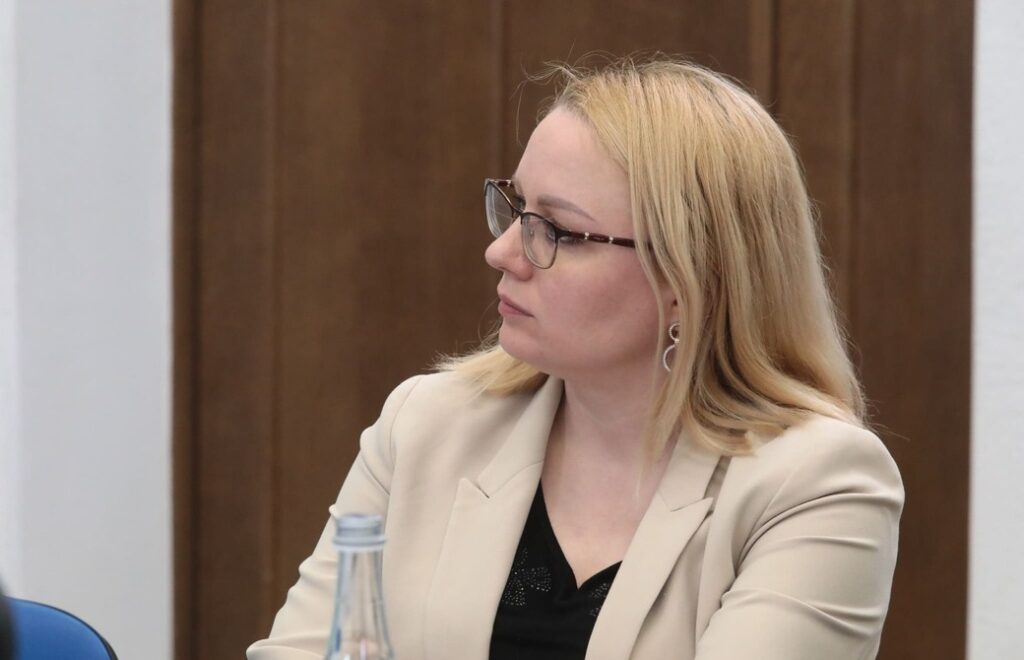
Dmytro Shulga, Director of the Europe and World Programme at the International Renaissance Foundation, explained why the narrative of external governance does not work with Ukrainians the way it does with Russians.
“I believe that the greatest intangible value is trust. The trust of everyone in everyone: Ukrainians in the government, Europeans in us. And it is clear that one of the most desirable scenarios for Russia is to undermine this trust.
But at the same time, the peculiarity of Ukrainian society is that distrust of the authorities is perceived as a normal, habitual state. On the other hand, we have a very positive image of Europe. And paradoxically, it is largely thanks to Russia itself.”
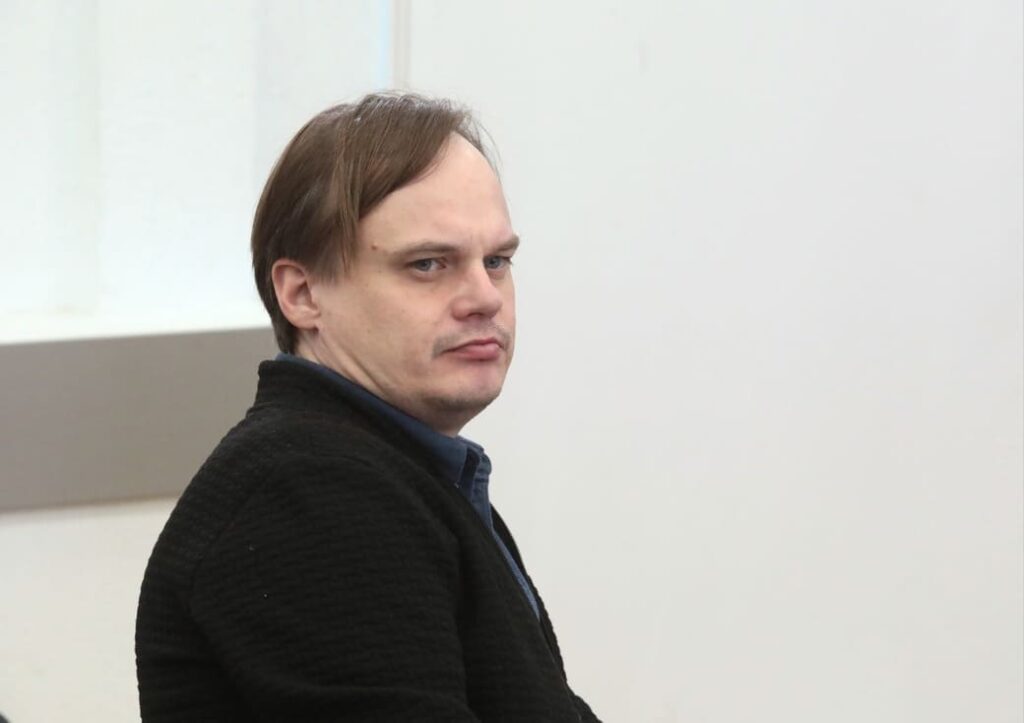
According to him, the opposite effect is that the narrative of ‘external governance’ works mainly for the Russian audience, but hardly works in Ukraine. This is a primitive, anti-Western message that has no impact on Ukrainian society.
“Another area is the promotion of Euroscepticism. Here, scepticism has a powerful ally in the form of the new US administration. The idea is spreading that Europe is untenable, that everything depends only on America. And while this is certainly not true, it is important to understand that everything does not have to be logical or reasoned. The main thing is mass and volume, i.e. decibels.”
Source: Spravdi

